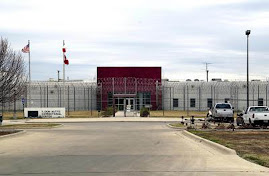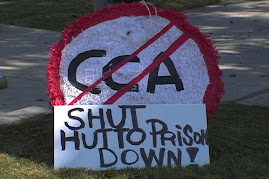Federal officials announced Thursday that they were closing a detention center for immigrant families in Texas and sending the detained families to the Berks Family Shelter Care Facility in the former Berks Heim.No word yet on whether Hutto's families will, indeed, be transferred or whether ICE will allow the detained family population to shrink gradually.
But nobody told Berks County. And the Berks facility is full.
County Commissioner Kevin S. Barnhardt, who is chairman of the county prison board, said he was unaware of the move by the Immigration and Customs Enforcement agency.
Kenneth A. Borkey Jr., executive director of the Bern Township facility, which houses families awaiting immigration hearings, said the center is at capacity.
Immigration officials could not be reached for comment.
In the announcement, they said the closing of the 512-bed T. Don Hutto Family Residential Facility in Taylor, Texas, was the first step in shifting illegal-immigration cases from the criminal to the civil court system.
Officials said they would send detained families to the Berks facility until it was filled and then develop alternative programs, such as supervised release, to monitor families awaiting deportation hearings.
Borkey said he was drafting a memo with the bad news for the immigration agency.
"We have an 84-bed capacity and we are at capacity," Borkey said.
Borkey said he planned to notify county commissioners and consult with immigration officials about reconfiguring the building to make room for more detainee families.
The county, which signed a contract with ICE that became effective Thursday, is reimbursed $197 a day per individual.
Borkey said news of the Texas closing rattled his employees, who feared their jobs also might be in jeopardy.
"At this time the county has not been informed of any changes to our program," Borkey said.
Practically speaking, it seems preferable to release families on bond, parole, and recognizance and as their claims are processed through immigration courts.
Most families detained at Hutto and Berks are asylum-seeking, and are therefore eligible for various forms of release. In fact, detaining refugees and asylum-seekers in prison-like conditions is generally considered bad policy and against international law, as this can re-traumatize people fleeing persecution, abuse, violence, and torture.








